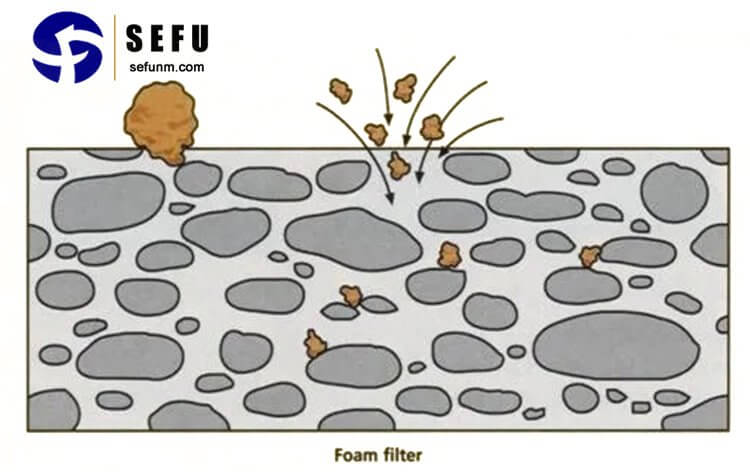Introduction
Aluminum foundries play a crucial role in manufacturing by producing a wide range of accessories for various machinery and industrial applications. These foundries utilize the versatile properties of aluminum to create components that enhance the performance, durability, and efficiency of different types of machinery.
The Aluminum Foundry Process
Before delving into the accessories, it’s important to understand the aluminum foundry process. Aluminum foundries use the technique of casting to produce intricate parts. Here’s an overview of the process:
Pattern Making: The process begins with creating a detailed pattern of the desired component. This pattern can be made of wood, metal, or plastic, and it serves as a template for the final product.
Sand Molding: A mixture of sand and a binding agent is used to create a mold cavity. The pattern is placed inside this cavity, and when removed, it leaves a negative impression of the component.
Melting and Pouring: Aluminum is melted in a furnace at high temperatures (typically above 1,200°C). Once molten, it is poured into the mold cavity.
Cooling and Solidification: The aluminum cools and solidifies inside the mold, taking on the shape of the desired accessory.
Removal and Finishing: After the aluminum has completely solidified, the mold is broken, and the newly formed accessory is removed. It may undergo additional processes such as machining, welding, or surface treatments for precision and quality.
Accessories Produced by the Foundry
Now that we have a basic understanding of the foundry process, let’s explore the accessories these foundries produce and the machinery they serve.
Engine Components:
- Cylinder heads
- Engine blocks
- Pistons
- Crankshafts
Aluminum’s excellent heat dissipation properties make it an ideal material for engine components. These accessories help improve the performance and efficiency of internal combustion engines in automobiles, motorcycles, and industrial machinery.
Heat Exchangers:
- Radiators
- Condensers
- Intercoolers
Heat exchangers are vital in many applications, including automotive and HVAC systems. Aluminum’s high thermal conductivity and lightweight nature make it a preferred choice for these accessories, ensuring efficient heat transfer.
Aerospace Components:
- Aircraft structural parts
- Landing gear components
- Engine components
Aluminum’s strength-to-weight ratio is particularly valuable in aerospace applications. Foundries produce precision components that meet stringent requirements for aircraft safety and performance.
Electrical and Electronic Enclosures:
- Control panels
- Junction boxes
- Heat sinks
Aluminum accessories in this category provide excellent electromagnetic shielding, heat dissipation, and protection for electrical and electronic systems, ensuring their reliability and longevity.
Transportation Components:
- Bicycle frames
- Motorcycle parts
- Train carriages
Aluminum foundries also create lightweight, corrosion-resistant components for various modes of transportation, contributing to fuel efficiency and overall durability.
Industrial Machinery Parts:
- Gearbox housings
- Conveyor components
- Hydraulic system parts
Foundries produce sturdy and durable components for industrial machinery, helping maintain operational reliability and longevity.
Alumina Ceramic Foam Filters In Aluminum Foundries
Alumina ceramic foam filters are essential components in the production of various aluminum castings due to their critical role in enhancing the quality of the final castings. These filters are used in aluminum foundries for several important reasons:

Impurity Removal:
Aluminum is susceptible to impurities like oxides, non-metallic inclusions, and dross during the melting and casting process. These impurities can negatively affect the mechanical properties and surface finish of the castings.
Alumina ceramic foam filters act as effective filtration media. When molten aluminum passes through these filters, they capture and remove impurities by adsorption and physical entrapment.
Improved Metal Quality:
The removal of impurities results in a cleaner and more refined aluminum melt. This, in turn, leads to castings with improved mechanical properties, such as tensile strength, hardness, and ductility.
High-quality aluminum castings are essential in various industries, including automotive, aerospace, and electronics, where precision and reliability are paramount.
Enhanced Casting Surface Finish:
Alumina ceramic foam filters contribute to a smoother and defect-free casting surface. They prevent the formation of surface defects like porosity, inclusions, and trapped gases.
Improved surface finish reduces the need for post-casting machining and polishing, saving time and costs in the manufacturing process.
Consistency and Reproducibility:
The use of alumina ceramic foam filters ensures consistent casting quality and reproducibility of cast components. This is particularly crucial in industries where uniformity and precision are essential, such as automotive manufacturing.
The filters help maintain consistent metallurgical properties throughout the casting production process.
Reduced Scrap Rates:
By minimizing the occurrence of casting defects, alumina ceramic foam filters help reduce scrap rates. This is a significant cost-saving factor in the foundry industry, as scrap material represents wasted resources and production time.
Environmental Benefits:
The reduction in casting defects and scrap rates not only benefits manufacturers economically but also has environmental advantages by reducing waste generation and energy consumption associated with remelting scrap aluminum.
In summary, alumina ceramic foam filters are a critical component in the production of aluminum castings because they play a vital role in removing impurities, improving the quality of the molten aluminum, and ultimately enhancing the mechanical properties and surface finish of the castings. These filters are indispensable for industries that demand high-quality, defect-free aluminum components, and they contribute to the overall efficiency and cost-effectiveness of aluminum casting processes.
Conclusion
Aluminum foundries play a pivotal role in the manufacturing industry by crafting a wide array of accessories for different machinery. The versatility, lightweight nature, and exceptional properties of aluminum make it a favored choice for producing components that enhance performance, efficiency, and durability across various industries. From engines and heat exchangers to aerospace and transportation, these foundries contribute significantly to the advancement of technology and innovation in the modern world.


